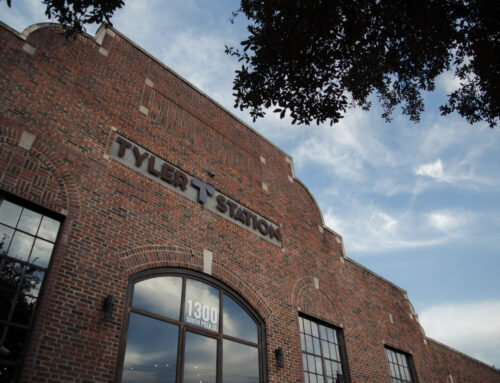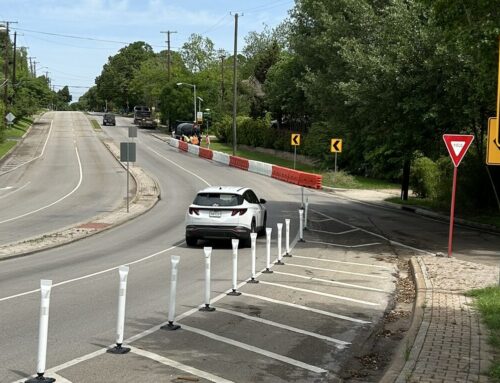Elizabeth I of England used to drive her advisors crazy by refusing to make a decision – or, as she called it, waiting on events. I mention this not to display my vast knowledge of Tudor England, but to point out that Elizabeth had a point that her advisors often didn’t understand. Sometimes, not making a decision is the best decision to make.
Which looks to be what’s happening with the Trinity River project, which has consumed so much ink, cyber ether, time and politics over the past year. Yesterday, a lender began foreclosure proceedings on one of the project’s key developers, who had planned to spend $950 million to build apartments and retail in the Trinity corridor. That news is just the latest in a series of headlines that don’t bode well for the Trinity vision, including the toll road and the various park amenities scheduled to be built. The question now is not when we’ll see these things, but if.
After the jump, a look at what’s happening and how the economy is affecting the project.
Money has always been the question mark for the various parts of the Trinity project, and the recession has only made that question mark bigger.
• There have always been concerns about how the city was going to pay for its commitments, given that we’re only supposed to spend $84 million approved in the 1998 bond election. As Jim Schutze has noted repeatedly over the past 18 months, project planners keep adding bits to the park and corridor without the means to pay for it. In addition, several of the previously budgeted for projects are short. Where is the extra money going to come from?
• There may not be any money to build the toll way, given the state’s highway financial woes. It’s complicated, and is part of a mano y mano between the legislature and Gov. Minority over whether the state should encourage private toll roads. But right now, no one is sure who is going to build the road (if it’s ever approved by the various regulators) and whether it will pay for itself, which is the only way to attract a private operator.
• Will we still need the toll road? Those of us who appreciate irony enjoyed the sight of Mayor Park Cities being told that progressive, 21st century cities don’t build those kinds of highways. More importantly, we seem to have turned a corner in the U.S. – and even in Texas – with driving. We’re doing less of it, and the sprawl that forces us to build highways like the Trinity toll road is becoming less economically viable.
• Finally, the JPI foreclosure is probably an attempt by the developer to negotiate better terms by scaring the bank into thinking it will dump the property. Still, it does show how the market has changed, even for apartments, in this economy. Because if JPI is having trouble, and it has been a prime mover in all of this, what does that say about the project?
Which brings us back to the if. If the recession ends this year and if banks start lending again and if the city’s finances improve, then decisions will need to be made. But if none of that happens – and it doesn’t look likely, given the news from Washington and Wall Street – then we would have been better off taking a cue from Elizabeth and waiting on events.





